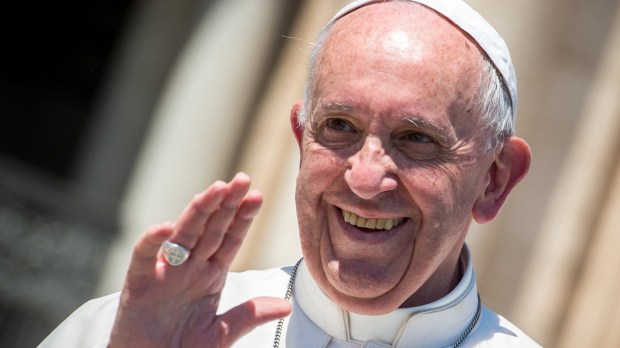Lenten Campaign 2025
This content is free of charge, as are all our articles.
Support us with a donation that is tax-deductible and enable us to continue to reach millions of readers.
From the Vatican, here are part of his remarksto those who attended the International Convention on the Ratio Fundamentalis Institutions Sacerdotalis, organised by the Congregation for the Clergy:
Priestly formation depends firstly on the action of God in our life, and not on our activity. It is a work that requires the courage of letting ourselves be formed by the Lord, to transform our heart and our life. This calls to mind the biblical image of clay in the hands of the potter (cf. Jeremiah, 18: 1-10) and the episode in which the Lord says to the prophet Jeremiah: “Arise and go down to the potter’s house, and there I will cause you to hear My words” (v.2). The prophet goes and, observing the potter who works the clay, he understands the mystery of God’s merciful love. He discovers that Israel is conserved in the loving hands of God Who, like a patient potter, takes care of His creature, places the clay on the wheel, models it, forms it and, in that way, gives it shape. If He realises that the vase has not turned out well, then the God of mercy once more puts the clay into the mass and, with the tenderness of the Father, begins to mould it again. This image helps us understand that formation is not resolved by cultural review or the odd sporadic local initiative. God is the patient and merciful artisan of our priestly formation and, as is written in the Ratio, this work lasts a lifetime. Every day we discover – with Saint Paul – that we carry “this treasure in earthen vessels, that the excellence of the power may be of God and not of us” (2 Cor 4: 7), and when we detach ourselves from our comfortable habits, from the rigidity of our mindsets and the presumption that we have already arrived, and have the courage of placing ourselves in the Lord’s presence, then He can resume His work on us, He forms us and transforms us. We must say it firmly: if one does not allow oneself to be formed by the Lord every day, he becomes a spent priest, who drags himself through his ministry out of inertia, with neither enthusiasm for the Gospel nor passion for the people of God. Instead, the priest who day by day entrusts himself to the wise hands of the Potter, conserves over time the enthusiasm of the heart, welcomes with joy the freshness of the Gospel, and speaks with words able to touch the life of the people; and his hands, anointed by the bishop on the day of his ordination, are capable in turn of anointing the wounds, the expectations and the hopes of the People of God. And let us know come to a second important aspect: each one of us as priests is called to collaborate with the divine Potter! We are not merely clay, but also the Potter’s helpers, collaborators in His grace. In priestly formation, both initial and permanent – they are both important! – we can recognize at least three protagonists, whom we also find in the “potter’s workshop”.
Among the “protagonists,” he points out, are the people of God:
Let us never forget this: the people, with the labour of their situations; with their questions and their needs, are the great wheel that forms the clay of our priesthood. When we go out among the People of God, we let ourselves be formed by their expectations; touching their wounds, we realize that the Lord transforms our life. If a portion of the people is entrusted to the pastor, it is also true that the priest is entrusted to the people. And, despite resistance and misunderstanding, if we walk in the midst of the people and devote ourselves to them with generosity, we will realize that they are capable of surprising gestures of attention and of tenderness towards their priests. It is a true school of human, spiritual, intellectual and pastoral formation. Indeed, the priest must stay between Jesus and the people: with the Lord, on the Mount, he renews every day the memory of his calling; with the people, in the valley, without ever being afraid of the risks and without rigidity in judgment, he offers himself like bread that nourishes and water that slakes thirst, “passing and blessing” those he encounters on the way and offering them the anointment of the Gospel.
Read on to learn more.

